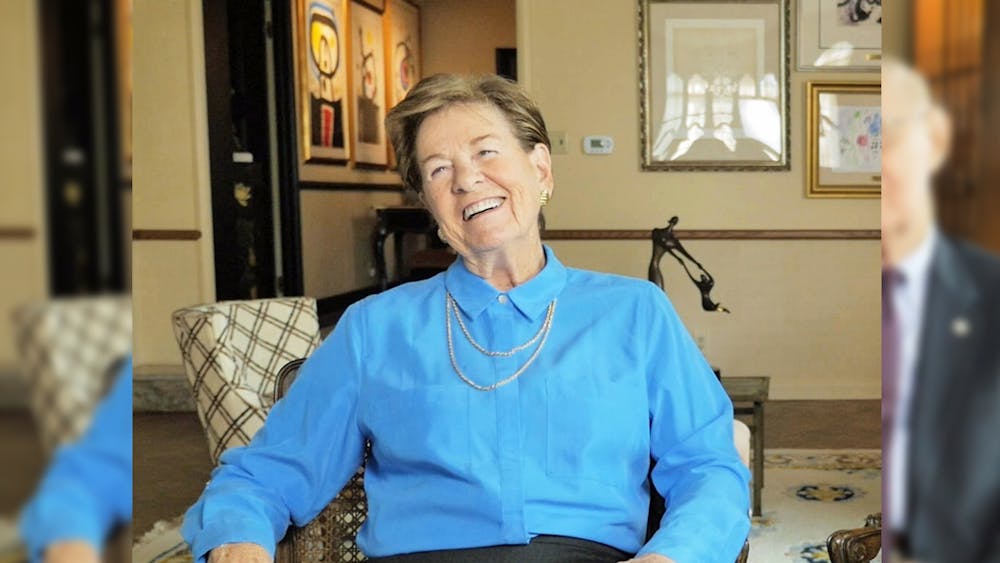Ghanaian musician Sheriff Ghale smiled at the sounds produced by the Semester at Sea students’ rhythmic circle and kept the clapping of the collaboration cohesive.
Sheriff, an in-port guest accompanying us during our voyage to Ghana, is a celebrated artist who sees music as more than simply sound.
For Sheriff, music is a vital organ to society and sustains the culture, beliefs, history and hopes of the Ghanian people. He has spent his life revealing social messages and reliving cultural concerns through his compositions.
More than 40 different ethnic groups are represented in the country of Ghana alone. Although many similarities between ethnicities exist, each are distinct cultural groups. Music is a part of each group’s workplaces and celebratory practices, as well as an oral historical account of society’s framework.
Sheriff’s music has done more than entertain listeners — it has spread educational information to the community.
Sheriff’s songs about the waterborne illness, guinea worm, were broadcast on Accra city radio stations and raised awareness. Eventually, the disease was eliminated.
“I don’t spend my music talking about ladies and cars and bling,” Sheriff said. “I can sing about things that benefit my community — education, health, construction and the essential problems in my village.”
As in many African countries, musicians in Ghana are community leaders who influence social movements and contribute to national development while they
document the every day.
The rich, rustic rhythm certainly distinguishes African music’s origins, but it is the lyrics and message that latch onto prospective listeners.
Because the message is the heart of his work, Sheriff has always composed his pieces by writing the words first and then placing them to music.
African music is designed to be a participatory, engaging art that makes audience members crucial percussion players.
The meaning of the lyrics is communicated and collective, and it is a direct departure from Western music, which is used mainly for entertainment and enjoyed quietly and separately by individual audience members.
“Our instruments and our words, they speak,” Sheriff said. “They say more than any kind of club dance music can. The music is the voice of society. Without it, our community is no longer being represented. No music in an African community means that the community is no longer speaking.”
In ethnic groups across Ghana, including the Ga and Ewe groups, oral histories have been documented through music and never written on paper. These stories are preserved in song and dance passed down by memory alone and keep the ethnic groups functioning together.
African music might not be composed or put on paper, but sounds always accompany daily tasks, leaving little space for silence.
Work songs from agricultural fields to the post office are played and are an essential part of the labor. Whether keeping time while stamping envelopes or drumming while collecting crops, the beat sets the pace for the operation. Like our heart, without the vital beat, everything comes to a stop.
Music composes the African people’s past, present and future just as much as the people compose the music.
Each special genre and dance has room for personal interpretation, allowing members to express their identity and creativity through transmission. With only a few days of sea separating us from the coast of Ghana, Sheriff has advised me to listen closely to all street sounds so that, even as a foreigner, I, too, can receive the full-fledged cultural experience by unveiling the message magnified in the music.
Column: More than simply sound
Get stories like this in your inbox
Subscribe





